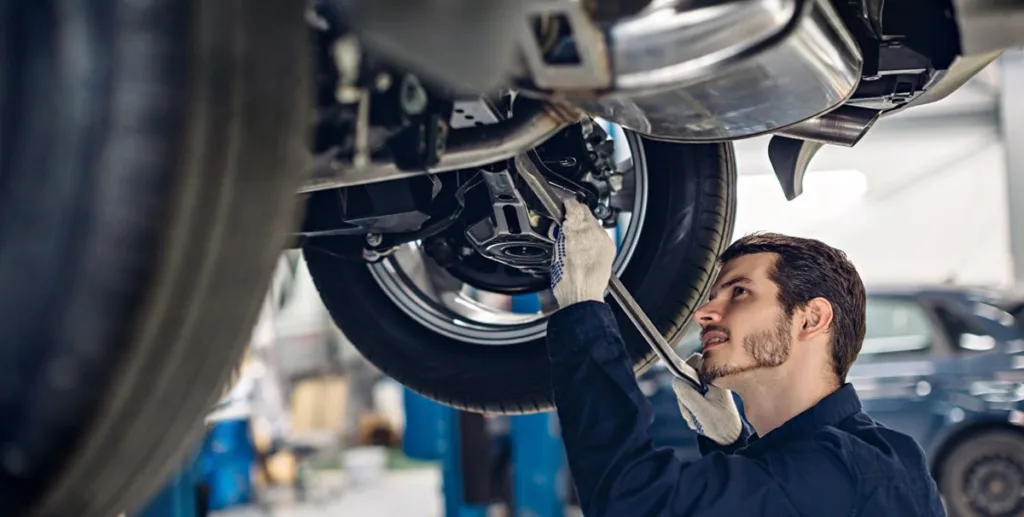Featured
While it's very easy to take your car battery for approved, comprehending just how to examine its health and wellness can assist protect against inconvenient failures. Normal checks can expand the life of your battery and guarantee your cars and truck runs smoothly.
Why Battery Health Issues. Your cars and truck's battery plays an important function in starting the engine and powering digital systems like lights, air conditioning, and the radio. A stopping working battery can create slow beginnings, malfunctioning electronic devices, or also leave you stranded. Batteries normally wear in time, yet recognizing when they're on the brink of failing can conserve you from these scenarios.
Signs That Your Battery May Be Weak. Before you dive right into checking the battery on your own, it's valuable to be mindful of some common caution indicators that show your battery could require attention:

Slow Engine Crank: If your engine takes longer to begin, it might be an indicator that the battery is shedding its power. Dim or Flickering Lights: When the cars and truck is running, check the fronts lights. If they appear dim or flicker while you're idling, your battery could be battling. Inspect Engine Light or Battery Warning Light: Many modern-day lorries will certainly display a battery warning light on the control panel if there's an issue with the battery or billing system. Corrosion: Visible corrosion around the battery terminals is a clear sign of a problem. This accumulation can disrupt the electric link, leading to bad efficiency. Frequent Dive Begins: If you consistently need to jump-start your automobile, your battery is likely near completion of its life and should be changed. Exactly how to Check Your Car's Battery Health and wellness. Evaluate the Battery for Physical Damage:. Start by looking over the battery for splits, leaks, or bulging. Physical damages to the battery case might show that the battery is at threat of failing. If you see any kind of leaks or rust, take care, as this could be dangerous.
Check the Voltage with a Multimeter:. An easy and precise means to check your battery wellness is by measuring its voltage. Here's how you can do it:

Establish your multimeter to DC voltage and pick a 20-volt array. With the vehicle off, place the red (positive) probe on the positive terminal and the black (adverse) probe on the unfavorable terminal of the battery. A healthy and balanced battery should read around 12.6 volts or even more. If the voltage is listed below 12.4 volts, the battery may be weak and require billing or substitute. If it's under 12 volts, it's time to consider getting a brand-new battery. Execute a Load Test:. To actually analyze exactly how well your battery carries out under anxiety, a tons examination is excellent. This examination is best done by an expert mechanic, however you can carry out a basic tons test if you have a battery load tester. Here's a simple method to do it:
Switch off the car, and gauge the voltage making use of a multimeter as described above. Start the cars and truck and gauge the voltage once again. If the voltage goes down dramatically listed below 12.4 volts when the engine is running, the battery is battling to preserve cost and may require replacement. Check the Generator Result:. A malfunctioning alternator can additionally trigger battery problems, as it's liable for recharging the battery while the cars and truck is running. If the reading is listed below this array, the alternator might not be appropriately billing the battery, which might lead to battery failure over time.
What to Do If Your Battery Is Weak. If your examinations show that your battery's voltage is low or it's not holding a charge, there are a couple of things you can do:
Charge the Battery: If the voltage is a little low (12-12.4 volts), attempt billing the battery with an automobile battery charger. If it holds a charge, it may be able to last a bit longer. Replace the Battery: If the battery's voltage is under 12 volts or it battles to hold a cost, it's likely time for a replacement. Most cars and truck batteries last 3-5 years, so if your battery is nearing that age, it deserves changing it prior to it dies completely. When to Change Your Auto's Battery. While batteries can last for numerous years, it is necessary to replace them before they fail entirely. Right here are some variables that may show it's time for a replacement:
Age: If your battery is more than 3-5 years old, it's an excellent idea to replace it, even if it hasn't shown signs of failure. Constant Problems Starting the Car: If your vehicle has trouble starting even after being jump-started, it's time to get a new battery. Corrosion or Leaks: If corrosion or leaking is visible on the battery, it might be an indication that it's getting to completion of its life. Verdict: Regular Battery Maintenance for Long Life. Checking your auto's battery health and wellness is a simple yet essential component of car maintenance. By maintaining an eye out for indication and carrying out basic examinations, you can determine problems early and avoid the disappointment of a dead battery. Routinely checking your battery will certainly ensure that your vehicle runs efficiently and begins reliably whenever, and it will help you stay clear of unexpected breakdowns. If your battery is on its last legs, changing it prior to it falls short will certainly conserve you from the hassle and inconvenience of being stranded.
Latest Posts
Trendy Convenience Begins from the Ground Up
Why Trust NAPA AutoCare? Montclare Auto Repair Is Your Trusted Choice
Why Yesterday's Creekside Tavern is the Perfect Area for Your Following Night Out
More
Latest Posts
Trendy Convenience Begins from the Ground Up
Why Trust NAPA AutoCare? Montclare Auto Repair Is Your Trusted Choice
Why Yesterday's Creekside Tavern is the Perfect Area for Your Following Night Out
